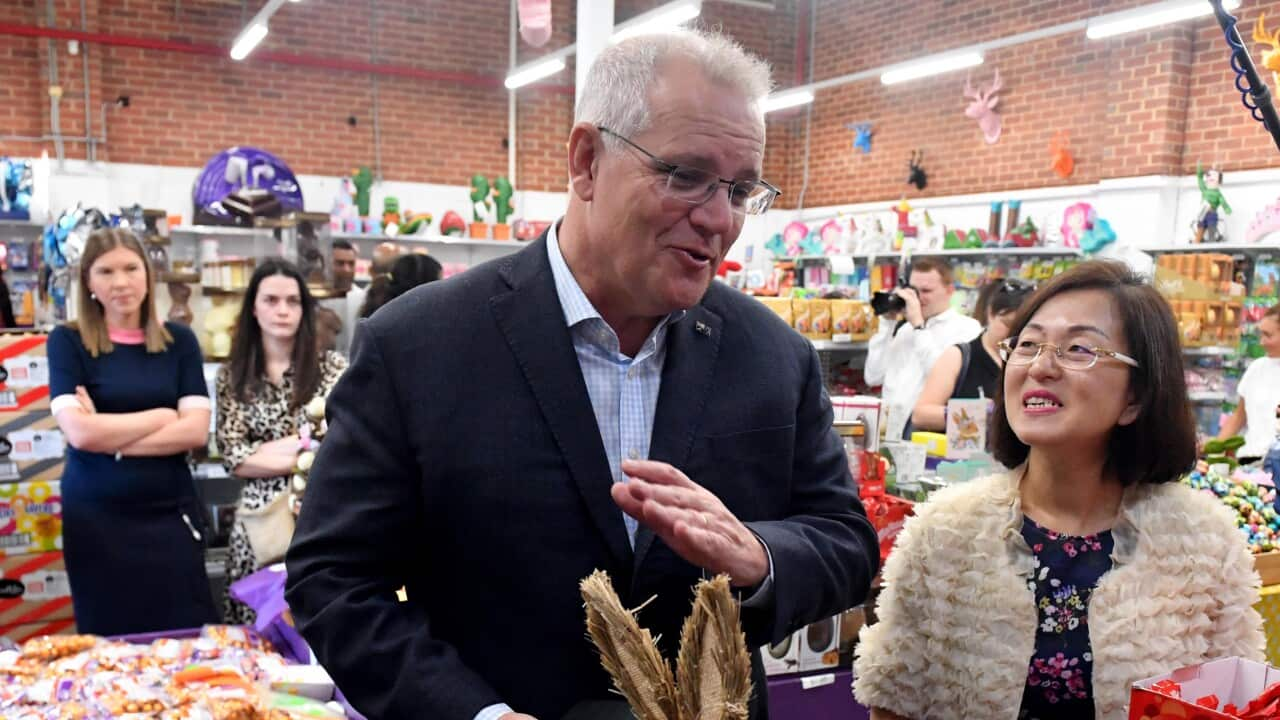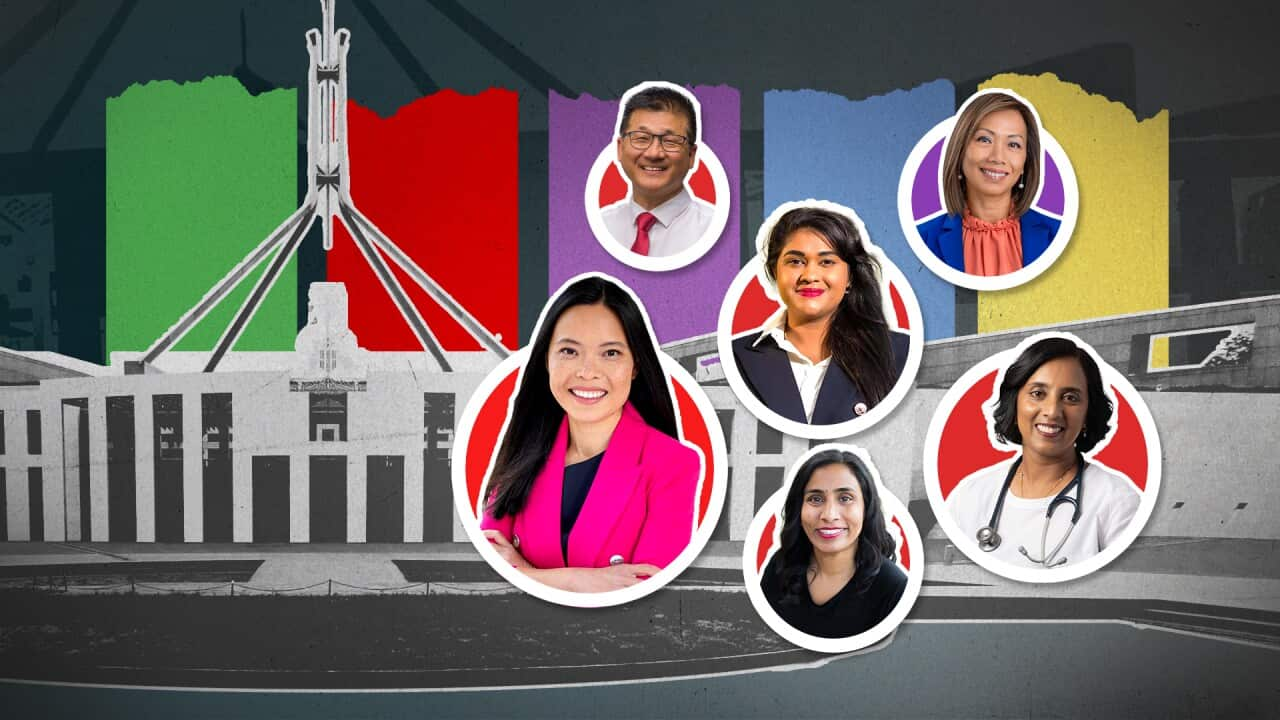KEY POINTS
- Liberal Party has releases its internal review into the May election.
- It urges the party to rebuild trust with Chinese-Australian community.
- The review found Scott Morrison was viewed by voters as 'out of touch'.
Voters of Chinese ancestry abandoned the Liberal Party over “incorrect” perceptions its attacks against Beijing targeted the Chinese community more broadly, according to a review of the party’s 2022 federal election failure.
A report by the Liberals, released on Thursday, also claimed former prime minister Scott Morrison was viewed as "out of touch" with women, with the party failing to fully appreciate the depths of anger felt in the community.
The review found Mr Morrison was the major factor in what it described as “the most serious loss for the party in its history”.
But it partially exonerated the former government, arguing it was governing in the “equivalent of war-time” during COVID-19, and put the national interest first "at considerable political cost".
It accepted the Liberals continue to underperform among culturally and linguistically diverse (CALD) communities, urging the party to “build and strengthen” ties with the Chinese-Australian community in particular.
“Rebuilding the party’s relationship with the Chinese community must … be a priority during this term of Parliament,” it said.

The review says the Liberal Party needs to urgently rebuild relations with the Chinese-Australian community. Source: Supplied
“There were a number of reasons for this, including a perception the previous government’s criticisms of the CCP government of China included the wider Chinese community more generally,” it said.
“This was obviously incorrect, but the party’s political opponents pushed this perception among voters of Chinese heritage in key seats.
"There is a particular need for the party’s representatives to be sensitive to the genuine concerns of the Chinese community and to ensure language used cannot be misinterpreted as insensitive."

Liberal MP Gladys Liu lost her seat. Source: AAP
'Cannot blame the voters'
Australian Institute of International Affairs and China Matters fellow Yun Jiang said there have been “a lot of concerns” among people of Chinese heritage about “the way the [former] government has been going”.
She referenced as they gave evidence to a parliamentary inquiry.
"The Liberal Party cannot blame the voters ... It is, of course, up to the party themselves, to ensure its messages are understood by the voters,” she told SBS News.
The review called for the party to develop an outreach program for MPs and senators to culturally and linguistically diverse (CALD) communities, and hire more bilingual staff for better engagement.
A candidate pool with "greater gender and ethnic diversity" is also needed to "reflect modern Australia", it said.
Ms Jiang welcomed the development, but said simply pre-selecting candidates is not enough.
"Parties have been good at pre-selecting diverse candidates, but often they have been doing that into seats that [they] have less chance of winning. They really need to do that in safe seats," she said.
The most recent Census found 5.5 per cent of Australia’s population, nearly 1.5 million people, identified as having Chinese ancestry.
Swings against the Coalition in electorates with a high proportion of voters with Chinese heritage were 6.6 per cent, compared to 3.7 per cent elsewhere, the report said.
, which she went on to lose.
, born to Chinese parents, with Vietnamese-Australian lawyer Tu Le during a heated campaign debate.
Ms Sitou won the Sydney seat of Reid with an 8.4 per cent swing.
What other reasons were given for the Liberals' election loss?
The Coalition was booted from office after bleeding votes to both the teals and right-wing minor parties, the review claiming it failed to "fully appreciate serious political developments which were taking place and did not respond as comprehensively or as quickly as normally would be the case".
Both major parties saw their primary vote decline, as voters installed the largest crossbench in Australian history.

"Very importantly, the Prime Minister was [perceived to be] not attuned to the concerns of women and ... unresponsive to issues of importance to them," it said, speaking of Mr Morrison.
"As a consequence, the Prime Minister’s standing with voters deteriorated significantly through 2021 to become a significant negative. The Prime Minister and the party were seen as out of touch.
"The leadership choice between Scott Morrison and Anthony Albanese became the most influential driver of voting intention during the campaign period."
Attacks from Labor state premiers and difficulties campaigning during COVID-19 lockdowns also contributed to the defeat, the review, conducted by former Liberal federal director Brian Loughnane and current frontbencher Jane Hume, found.
Popular WA Premier Mark McGowan seized on comments by Mr Morrison, apparently likening West Australians to cave dwellers, to attack him during the campaign.
And the emergence of the teal independents, which seized six traditionally safe Liberal seats, meant the party was forced to campaign on “two different fronts” and struggled to campaign on a single national message.
“The teals are not a collection of independent entities. They are, by any meaningful interpretation of the term, a political party and should be considered by the electoral authorities as such,” the review said.
Compounding the problem was an increased primary vote for right-wing minor parties, with over a third of One Nation and United Australia Party preferences flowing to Labor.
Dissatisfaction with the Coalition among that cohort was driven by issues relating to COVID-19 management, religious liberty, and “insufficient progress on addressing concerns on various cultural changes”.


